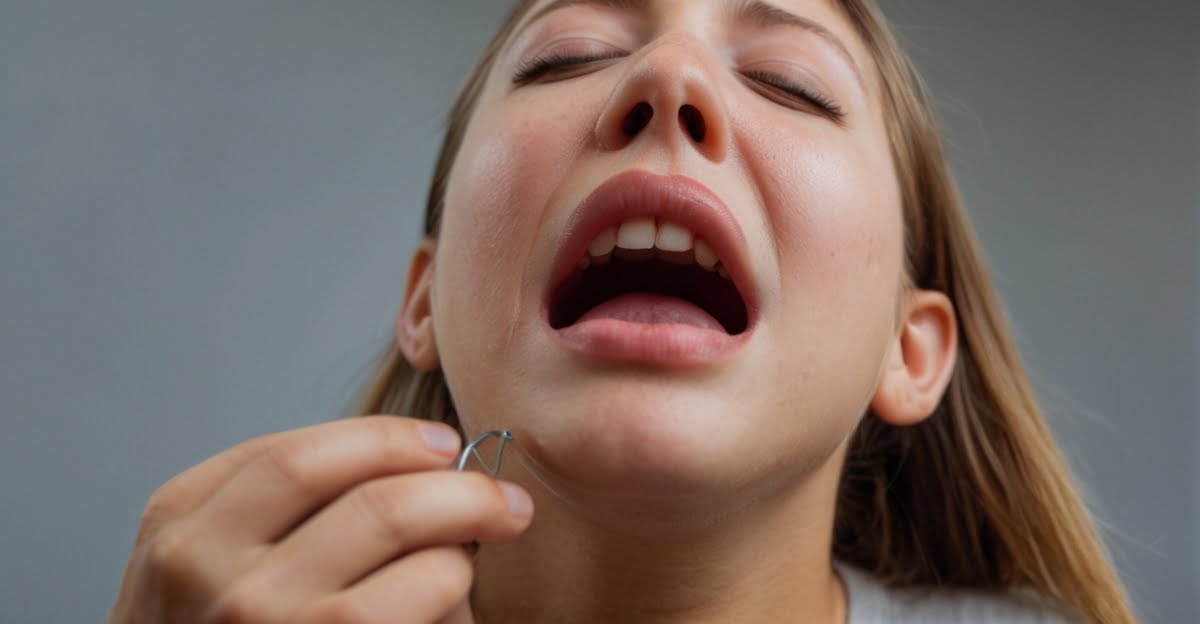If you’ve ever experienced a swollen roof of your mouth, you know it can be quite uncomfortable and concerning. There are various reasons why this may happen, and in this article, we’ll explore the common causes, symptoms, and potential remedies for this condition.
Understanding Palatal Swelling
The roof of your mouth, also known as the palate, plays a crucial role in your everyday life. It’s involved in processes like speaking, eating, and breathing, so when it becomes swollen, it can lead to discomfort and sometimes even pain. Palatal swelling can occur in different forms and for various reasons. Here are some of the key factors that can lead to a swollen palate.
1. Allergies and Allergic Reactions
Allergies can cause the roof of your mouth to swell. When you’re exposed to allergens, your body’s immune system can overreact, triggering inflammation in the palate. Common allergens that may lead to palatal swelling include pollen, dust mites, certain foods, and insect stings. In some cases, this reaction can be severe, leading to anaphylaxis, a life-threatening condition.

2. Infections in the Mouth
Infections are another common cause of palatal swelling. Bacterial or viral infections can lead to inflammation and discomfort in the roof of your mouth. Some of the infections that may contribute to this condition include cold sores, canker sores, and oral thrush.
3. Trauma or Injury
Accidental trauma or injury to the roof of your mouth can result in swelling. This can happen due to various reasons, such as biting the palate, eating very hot or sharp foods, or physical injury to the mouth area. Swelling may also be accompanied by pain and potential damage to the tissues.
4. Oral Cancer
While less common, oral cancer can manifest with palatal swelling as one of its symptoms. It’s essential to monitor any persistent changes in your mouth, including swelling, and seek medical attention if you suspect something more serious may be the cause.
Symptoms of a Swollen Roof of the Mouth
Palatal swelling can come with a range of symptoms, depending on the underlying cause. These symptoms may include:
- Discomfort or pain in the roof of the mouth
- Redness and inflammation
- Difficulty eating, speaking, or swallowing
- Ulcers or sores in the mouth
- Fever or other signs of infection
- Changes in the color or texture of the palate
It’s important to pay attention to these symptoms and seek medical advice when necessary, especially if they persist or worsen over time.
1. Can a swollen roof of the mouth be a sign of a food allergy?
Yes, a swollen palate can be a sign of a food allergy. When your body reacts to a particular allergen in food, it can lead to an allergic reaction, causing inflammation in the mouth, including the roof of the mouth.
2. Is it normal to experience palatal swelling after burning the roof of your mouth on hot food or drinks?
It’s not unusual to experience some swelling and discomfort in the roof of your mouth after burning it on hot food or drinks. However, if the swelling persists or is severe, it’s a good idea to consult a healthcare professional.
3. What can I do to alleviate the discomfort of a swollen roof of the mouth at home?
To alleviate the discomfort of a swollen palate at home, you can try rinsing your mouth with salt water, using over-the-counter pain relievers, and avoiding foods that may aggravate the swelling, such as spicy or acidic foods.
4. When should I see a doctor for a swollen roof of the mouth?
You should see a doctor for a swollen palate if the swelling is severe, lasts for an extended period, or is accompanied by other concerning symptoms like difficulty breathing, fever, or signs of infection.

Treating a Swollen Roof of the Mouth
The treatment for a swollen roof of the mouth depends on the underlying cause. Here are some general tips to alleviate discomfort:
- Allergies: If the swelling is due to allergies, it’s crucial to identify and avoid the allergen. Antihistamines or epinephrine may be needed in severe cases. Consult an allergist for proper management.
- Infections: For mouth infections, antifungal or antibacterial medications may be prescribed by a healthcare provider. Maintaining good oral hygiene can also help prevent further complications.
- Trauma: Traumatic injuries usually heal on their own. However, you can use ice packs to reduce swelling and over-the-counter pain relievers if necessary.
- Oral Cancer: If oral cancer is suspected, a healthcare professional will perform a thorough examination and recommend a treatment plan, which may involve surgery, radiation therapy, or chemotherapy.
In all cases, it’s essential to consult a healthcare professional for an accurate diagnosis and appropriate treatment. Ignoring a swollen roof of the mouth can lead to more severe complications and discomfort.
Conclusion
A swollen roof of the mouth can result from various causes, including allergies, infections, trauma, or, in rare cases, oral cancer. Recognizing the symptoms and seeking timely medical attention is crucial to identify the underlying issue and receive appropriate treatment. Whether it’s allergies, injuries, or infections, addressing the root cause is essential to alleviate discomfort and restore the health of your palate. Don’t hesitate to consult a healthcare professional when you experience persistent or severe palatal swelling to ensure your well-being and peace of mind.

